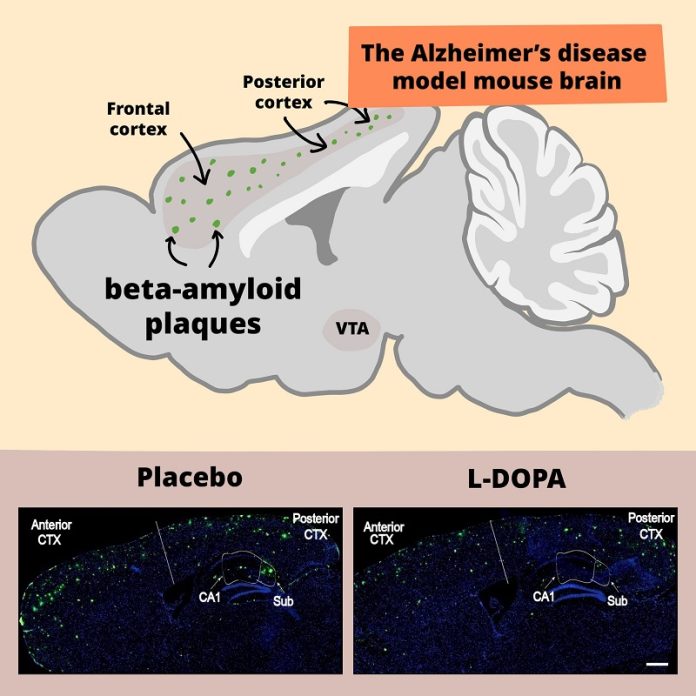
A team of researchers in Japan has discovered a potential new way to treat Alzheimer’s disease using dopamine, a chemical naturally produced in the brain.
Led by Takaomi Saido at the RIKEN Center for Brain Science, the team found that dopamine treatment improved memory and reduced harmful brain plaques in mice with Alzheimer’s disease.
These findings could lead to new treatments for humans in the future.
Alzheimer’s disease is linked to the build-up of hard plaques around brain cells, made from a substance called beta-amyloid. These plaques can start forming years before symptoms like memory loss appear.
One key to treating Alzheimer’s might be an enzyme called neprilysin, which can break down beta-amyloid and reduce plaque formation.
Previous studies showed that increasing neprilysin in the brain can improve memory and lower plaque levels in mice.
However, finding a practical way to raise neprilysin levels in humans is challenging, as the enzyme cannot be taken as a pill or injection.
Saido’s team tested many molecules to see if any could naturally increase neprilysin levels in the brain. They discovered that dopamine, a hormone involved in brain function, could do the job.
In the study, dopamine was applied to brain cells in a lab, and it led to higher neprilysin levels and lower beta-amyloid levels.
The researchers then tested the treatment in mice using a system that specifically activated dopamine-producing brain cells. After eight weeks of treatment, the mice had fewer plaques in the prefrontal cortex, a key brain area for memory.
Next, the researchers tried using L-DOPA, a drug often used to treat Parkinson’s disease, which can increase dopamine levels in the brain. Mice treated with L-DOPA had fewer plaques and showed better memory performance than untreated mice.
While these findings are promising, L-DOPA has serious side effects in humans, especially in Parkinson’s patients. The next step for the research team is to figure out exactly how dopamine increases neprilysin levels. This could lead to a new way to prevent Alzheimer’s disease before symptoms even appear.
“L-DOPA has shown potential in reducing plaques and improving memory in mice,” says lead author Watamura Naoto. “But we need to understand more about how it works to develop safe treatments for humans in the future.”
If you care about Alzheimer’s disease, please read studies about vitamin D deficiency linked to Alzheimer’s and dementia, and strawberries can be good defence against Alzheimer’s.
For more health information, please see recent studies about foods that reduce Alzheimer’s risk, and oral cannabis extract may help reduce Alzheimer’s symptoms.
Source: RIKEN.



